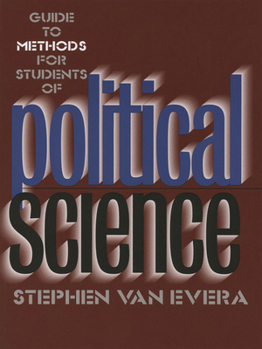Guide to Methods for Students of Political Science: Property, Proof, and Dispute in Catalonia Around the Year 1000
Select Format
Select Condition 
Book Overview
Stephen Van Evera greeted new graduate students at MIT with a commonsense introduction to qualitative methods in the social sciences. His helpful hints, always warmly received, grew from a handful of memos to an underground classic primer. That primer evolved into a book of how-to information about graduate study, which is essential reading for graduate students and undergraduates in political science, sociology, anthropology, economics, and history - and for their advisers.
-How should we frame, assess, and apply theories in the social sciences? "I am unpersuaded by the view that the prime rules of scientific method should differ between hard science and social science. Science is science."
-A section on case studies shows novices the ropes.
-Van Evera contends the realm of dissertations is often defined too narrowly "Making and testing theories are not the only games in town.... If everyone makes and tests theories but no one ever uses them, then what are they for?"
-In "Helpful Hints on Writing a Political Science Ph.D. Dissertation," Van Evera focuses on presentation, and on broader issues of academic strategy and tactics.
-Van Evera asks how political scientists should work together as a community. "All institutions and professions that face weak accountability need inner ethical rudders that define their obligations in order to stay on course."






